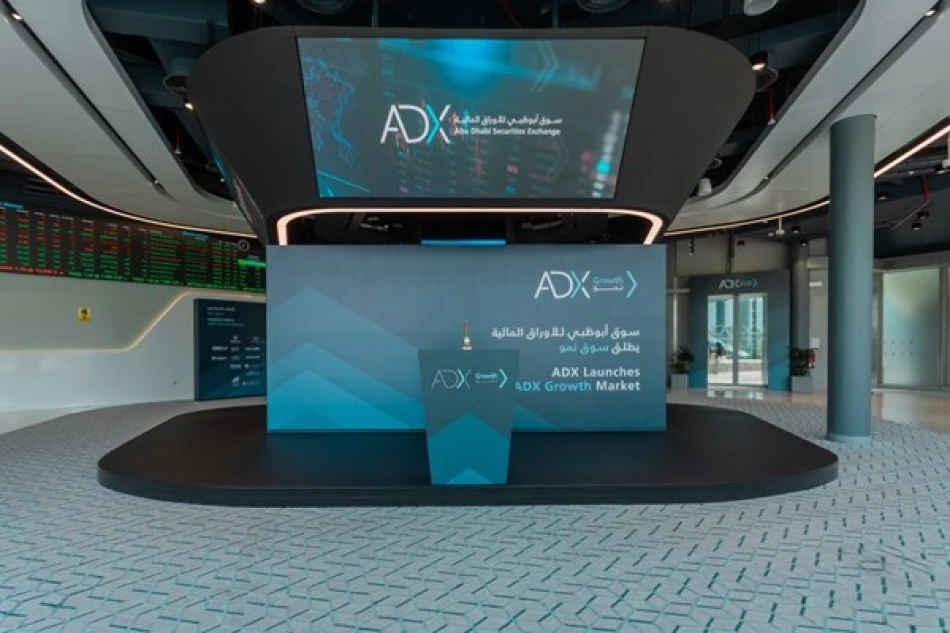
Local Stock Markets Surge by AED 13.74 Billion in Gains Today
UAE Stock Markets Surge to Record Highs as Banking Sector Leads Historic Rally
The UAE's stock markets achieved new milestone levels as both Abu Dhabi and Dubai exchanges surged to unprecedented heights, driven by a powerful banking sector rally that pushed valuations to historic peaks. The combined market capitalization gained AED 13.75 billion in a single session, with foreign investors pouring AED 300.17 million into UAE equities—signaling growing international confidence in the Emirates' financial sector transformation.
Market Performance Reaches New Territory
The Abu Dhabi Securities Exchange (ADX) general index climbed 25.68 points (0.25%) to close at 10,176.33 points, while Dubai Financial Market (DFM) posted a more robust 1% gain, adding 60.38 points to reach 5,974.43 points. These levels represent the highest valuations in the markets' recent history, underlining the sustained momentum that has characterized UAE equities throughout 2024.
Trading volumes reflected the market's vitality, with total transactions across both exchanges reaching AED 2.689 billion. More than 829.94 million shares changed hands through 49,637 transactions, indicating broad-based participation rather than concentrated institutional moves.
Banking Sector Drives the Rally
The financial services sector emerged as the primary catalyst for the market surge, with major banking stocks posting significant gains. First Abu Dhabi Bank (FAB) rose 2.63% to close at AED 17.16, while Commercial Bank of Abu Dhabi gained 1.83% to AED 15.54. In Dubai, Emirates NBD surged 3.73% to hit AED 26.4, and Dubai Islamic Bank climbed 2.15% to AED 9.47.
This banking sector strength reflects several underlying factors: robust credit growth, improving net interest margins as regional interest rates remain elevated, and increasing confidence in the UAE's economic diversification strategy. The performance also mirrors broader regional banking trends, where Gulf financial institutions have benefited from higher oil revenues and increased government spending.
Foreign Investment Flows Signal International Confidence
Perhaps most significantly, foreign investors demonstrated strong appetite for UAE equities, with net purchases of AED 300.17 million split between AED 107.24 million in Abu Dhabi and AED 192.93 million in Dubai. This foreign inflow pattern suggests institutional investors view the UAE market as increasingly attractive relative to other emerging market alternatives.
The sustained foreign interest likely reflects several strategic factors: the UAE's position as a regional financial hub, its successful economic diversification beyond oil, and competitive valuations relative to other Gulf markets. Unlike previous cycles where foreign flows were more volatile, the current pattern suggests structural rather than speculative investment.
Sectoral Leadership and Market Breadth
Beyond banking, real estate and infrastructure stocks also contributed to the rally. Aldar Properties (ALDAR) led Abu Dhabi trading volumes with AED 212.73 million in transactions, while Emaar Properties dominated Dubai activity with AED 272.47 million in trading value. This sectoral diversity indicates the rally extends beyond financial services into the broader economy.
Market breadth was positive but not overwhelming: in Abu Dhabi, 41 stocks advanced against 32 decliners, while Dubai saw 27 gainers versus 20 losers. This suggests selective rather than euphoric buying, which typically indicates more sustainable price movements.
Regional Context and Investment Implications
The UAE's market performance stands out in the current global context, where many emerging markets face headwinds from geopolitical tensions and monetary policy uncertainty. The Emirates' success in attracting capital reflects its strategic positioning as a stable, business-friendly jurisdiction with strong regulatory frameworks.
For investors, the current rally raises questions about sustainability and entry points. While the banking sector's fundamentals appear strong, the rapid price appreciation may have reduced the margin of safety for new positions. However, the consistent foreign inflows suggest institutional investors see value even at current levels.
Market Capitalization Milestones
The day's gains pushed Abu Dhabi's total market capitalization to AED 3.119 trillion, while Dubai reached AED 1.037 trillion. These figures represent significant milestones and place the UAE among the larger emerging market exchanges globally. The combined market value of over AED 4 trillion demonstrates the scale of capital formation the UAE has achieved.
This market depth provides important benefits: increased liquidity for institutional investors, better price discovery mechanisms, and enhanced ability to raise capital for growing companies. These factors create a positive feedback loop that can sustain long-term market development.
Looking Forward: Sustainability and Risks
While the current momentum appears strong, several factors will determine whether these gains can be sustained. The banking sector's continued outperformance depends on maintaining healthy loan growth without compromising credit quality. Regional geopolitical stability remains crucial, as does the UAE's ability to continue attracting international business and investment.
The heavy weighting toward financial services also creates concentration risk. Should banking sector fundamentals deteriorate—perhaps due to regional economic slowdown or credit quality issues—the broader market could face significant pressure. However, the UAE's diversification efforts into technology, renewable energy, and logistics provide some balance.
For now, the combination of strong fundamentals, foreign investor interest, and supportive government policies suggests the UAE's equity markets have established a new, higher trading range. Whether this translates into sustained long-term returns will depend on the broader economy's ability to deliver the growth that current valuations appear to anticipate.
Most Viewed News

 Layla Al Mansoori
Layla Al Mansoori






